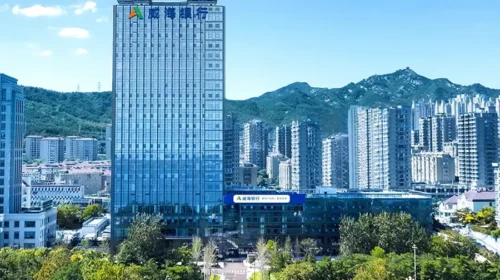Cancer drug maker Biostar shines on Hong Kong market debut

Unusually for a newly listed biotech, the company has already launched a commercial product – a flagship oncology drug that was developed using synthetic biotechnology
Key Takeaways:
- The active agent in the company’s injection for breast cancer is also a key ingredient in 16 of its 19 drug pipelines
- The public offering was oversubscribed by around 20 times and the shares rose 62% in their trading debut
By Molly Wen
A Chinese drug developer that is already making money from a bioengineered cancer treatment has landed with a bang on the Hong Kong stock market.
It was third time lucky for Beijing Biostar Pharmaceuticals Co. Ltd. (2563.HK), which had failed two years ago to list on Shanghai’s Nasdaq-style STAR Market and stumbled at its first IPO attempt in Hong Kong. This time the biomedical company enjoyed a heavily subscribed offering and sailed onto the exchange with a bullish debut, helped by a brighter mood among investors.
Biostar stands out from the crowd when it comes to listings under special rules for biotechs that have yet to break even. Unlike most of its peers, the company has already brought one pioneering product to market and can boast some sales revenue, although an actual profit still looks to be a way off.
Around 14.59 million Biostar shares were offered at HK$16, raising HK$233 million ($29.8 million) for the drug developer. Investors were eager to get on board after a revival in the Hong Kong IPO market, driving an oversubscription rate of 20.45 times for the stock. The share jumped to HK$25.95 in its trading debut on Thursday, 62% higher than the IPO price.
A key factor was the support of cornerstone investors who grabbed the bulk of the offered shares. VeriSilicon owned by Gong Hongjia, chairman of VCANBIO Cell & Gene Engineering, took a block of shares worth $10 million, while investment funds Silky Water, Baheal Medical, and TPG affiliate Novotech SG together subscribed for $13 million in shares.
Founded in 2002 by a Chinese-American couple, Tang Li and Qiu Rongguo, the company aims to develop innovative oncology drugs using synthetic biotechnology, in which organisms such as bacteria or viruses are engineered to take on new characteristics for therapeutic use.
Using this scientific approach, Biostar has established three development platforms. One uses combinatorial biosynthesis to modify gene clusters, the second involves a microbial fermentation process for drug production and the third handles different dosage forms such as injections and oral preparations.
Biostar scored a breakthrough with its utidelone injection, which was approved in 2021 for treating recurrent or metastatic breast cancer in combination with other drugs.
According to the prospectus, the product is the first chemotherapeutic drug on the market to have been developed through synthetic biotechnology, offering several advantages over other treatments. These benefits include low hematotoxicity, reduced likelihood of drug resistance, effectiveness against tumors that fail to respond to other drugs and the ability to penetrate the blood-brain barrier, the company said.
Nonetheless, the drug’s commercial track record tells a more nuanced story than the upbeat prospectus. Utidelone was officially included in China’s medical insurance system in 2023 but was only available in 509 hospitals by the end of May this year. Sales in 2023 only reached about 90,000 bottles. According to official Chinese treatment guidelines, a utidelone injection is used for the first-line treatment of triple-negative breast cancer patients and for those who have failed 12 other treatments, suggesting that the potential market is still limited. Moreover, the drug has not gained approval for treating other conditions over the past two years.
Biostar has set up a production base for utidelone in a high-tech zone in Chengdu, with an annual output capacity of 500,000 bottles. It is also investing in adding a production line for a capsule version of the drug that is set to go into operation in the fourth quarter of this year.
Big R&D expenses
Biostar is working on tapping the full commercial potential of its anti-cancer drug. All but three of its 19 pipeline projects are based on utidelone as an active pharmaceutical ingredient. The company is targeting new indications for the drug such as small cell lung cancer and lung cancer that spreads to the brain, while also developing alternative forms such as oral capsules, nano-injections and antibody conjugate versions. The oral capsules would mark a significant advance in cancer chemotherapy, with marketing approval clearing the way for a bigger market share, the prospectus said.
The company logged sales revenue of 32.82 million yuan ($4.6 million) in 2022, 66.64 million yuan the following year and 28.56 million yuan in the five months to the end of May, driven by utidelone. However, the revenue stream at current levels cannot match the hefty expenses for drug development and sales.
Over the same period, research and development expenses came in at 82.74 million yuan, 126 million yuan and 43.83 million yuan. Sales volumes have risen since the flagship drug was added to the national insurance list, but the price has been slashed by more than 60%. Hence the company is still stuck in the red, with losses of 160 million yuan in 2022, 190 million yuan in 2023 and 57.45 million yuan in the first five months of this year.
Biostar completed five financing rounds from 2013 to 2020, scoring a post-investment valuation of 4.5 billion yuan after adding 700 million yuan to the pot in the last round. Its backers include many prominent investors in the biotech arena, such as Matrix Partners, Efung Capital, CICC, SDIC Venture Capital and CCB International.
Based on the IPO price, Biostar’s price-to-sales (P/S) ratio stands at about 74 times, compared with just 5 times for RemeGen (9995.HK; 688331.SH), a biotech that also has few commercialized products. Investors seem to be more optimistic about Biostar’s prospects and therefore willing to grant the company a higher valuation.
To subscribe to Bamboo Works weekly free newsletter, click here





